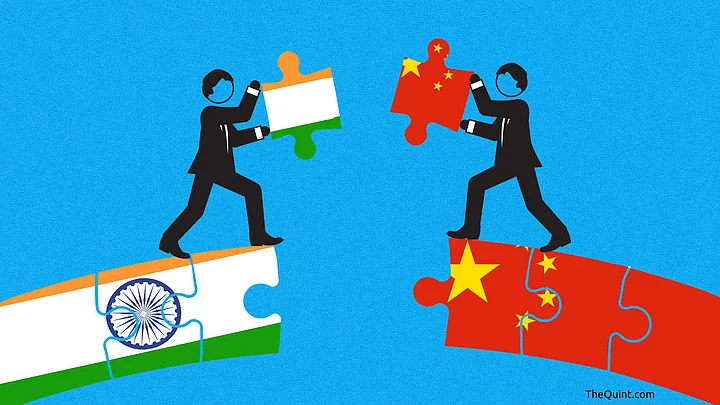On 12 and 13 July 2019, the Asian Infrastructure Investment Bank’s (AIIB) annual meeting, covering sustainable infrastructure investment and cooperation, was held at Luxembourg. AIIB, set up in 2014, has 100 members (with the latest entrants being Rwanda, Benin, Djibouti). AIIB has approved projects with an investment financing of USD 7.5 billion.
AIIB’s India Connection
While China has the largest share in AIIB (26.63 percent), India has the second largest share, at well over 7.65 percent, and is the largest borrower with project portfolios worth USD 4.4 Billion. Only recently, (AIIB) has provided a USD 100-million loan to L&T Infrastructure Finance Company Limited (LTIF), a subsidiary of L&T Finance Holdings Ltd.
This loan is being used to lend for wind and solar-related projects.
While India is committed to reducing its carbon emission levels from 35 percent to 30 percent by 2030 under the provisions of the Paris Climate Agreement, the AIIB also seeks to support projects promoting environmental sustainability.
AIIB’s third meeting was held in June 2018 in Mumbai. India had borrowed USD 200 million for investment in the NIIF (National Investment & Infrastructure Fund). AIIB has made commitments worth 1.2 Billion USD for important infrastructural projects in a number of states: Bengaluru Metro where it is putting in about USD 335 million in the second phase, power transmission in Tamil Nadu, rural roads in Gujarat, and an infrastructure project in Madhya Pradesh.
Most recently, AIIB and INDIA signed a USD 455 million loan to improve rural connectivity in Andhra Pradesh. This project will connect 3,300 habitations, and will benefit around 2 million people. More projects in the conduit include major irrigation and flood management projects in West Bengal, investment in Amravathi capital of Andhra Pradesh.
Importance Of Rural Infrastructure
One of the major advantages of AIIB vis-à-vis other lenders is that it clears the projects of member countries within a 6-month period (Asian Development Bank on the other hand takes a period of 3 years).
A Senior AIIB official, Yee Ean Pang, AIIB’s Director General for Investment Operations Department, while commenting on the importance of India in the context of “India is the largest country that we are supporting,” also spoke about the specific importance of rural infrastructure – especially rural roads in India’s economic growth.
One of the interesting points made by the AIIB President was that the organisation would launch local currency, financing products in a number of countries including India this year, with the aim of providing more options to borrowers.
How India Can Navigate China & the BRI Factor
While there is no doubt that AIIB could play an important part in India’s infrastructural development especially in connectivity and power, yet, AIIB’s funding is also BRI-related. In fact, senior officials of the AIIB have stated on numerous occasions that the Belt & Road Initiative (BRI) is top priority for AIIB. India, on the other hand, has categorically stated, that it will not be a part of BRI. The reasons cited are lack of transparency, and the fact that CPEC passes through disputed territory.
In the SCO Summit, PM Modi taking an indirect jab at BRI and CPEC, stated that “connectivity projects are India’s priority but such initiatives should respect another country’s sovereignty and its territorial integrity”.
Post the Wuhan Summit, there has been talk of revival of the BCIM (Bangladesh, China, India, Myanmar Corridor).
Xi Jinping had raised the issue with PM Narendra Modi on the sidelines of the SCO Summit in June 2019. Last year in April, during discussions in the 5th Strategic Economic Dialogue, New Delhi had stated that it could not accept the project, if it is under the rubric of BRI.
Recently, during Bangladesh Prime Minister Sheikh Hasina’s visit to China, President Xi Jinping and Chinese PM Li Keqiang discussed the issue, with the Chinese President even referring to India’s role in the revival of the project.
In January 2019, an AIIB report had stated that India would be compelled to join BRI post the elections due to economic compulsions. So far, there have been no such indicators.
India’s boycott of and objection to the BRI, and especially the CPEC over sovereignty concerns, has not affected bilateral trade between the two countries, going up to USD 96.5 billion, and is expected to touch the USD 100 billion mark by 2020. If India balances the relations well, it doesn’t need to join BRI for seeking loans from AIIB for funding its infrastructure, especially since India is the second largest stakeholder.
The India-China Balance
AIIB reiterates the complex global dynamics, where narratives of global governance are dominated by the West. Trump’s economic insularity has also resulted in massive changes. Beijing and New Delhi, who have worked closely in BRICS, will seriously seek to find common ground in AIIB. AIIB will play a crucial role in India’s economic growth – especially in funding for infrastructure projects, both in rural and urban areas. Loans from AIIB could also help New Delhi in accomplishing its environmental goals.
So far, the BRI project has not really affected the AIIB. Both India and China have understood the importance of respecting each other’s positions, post the Wuhan Summit.
Yet, in the long run, it remains to be seen as to whether the BRI will impact the AIIB, especially India's approach towards the organisation.
(Tridivesh Singh Maini is a New Delhi-based Policy Analyst associated with The OP Jindal Global University, Sonipat. Mahitha Lingala is a student at the OP Jindal Global University. This is an opinion piece and the views expressed above are the author’s own. The Quint neither endorses, nor is responsible for them.)
